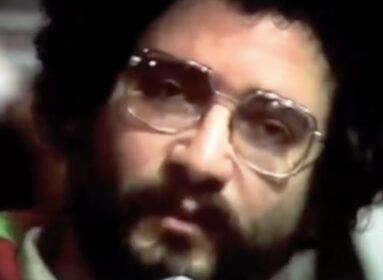By Dmitriy Shapiro/JNS.org/Washington Jewish Week
In striking a more libertarian tone than in previous years, the annual Conservative Political Action Conference (CPAC) might be taking the constituency represented by its sponsor, the American Conservative Union (ACU), down a path that is alienating to some in the Jewish community.
According to some observers, the March 6-8 conference’s apparent toning down of foreign policy concerns certainly played to the base of U.S. Sen. Rand Paul (R-KY), who won the annual gathering’s straw poll of presidential contenders for the second straight year, but could prove a liability in the effort to win over moderate Jewish voters for the Republican Party.
“The most important thing is to find a candidate that speaks to all these people,” said Eric Rappaport, director of PolicyHill.com. “I think a lot of Jews are Reagan Democrats who are more centrist, and what the Republicans really need instead of rhetoric is someone who can garner those votes and bring them into the fold.”
Though Jews make up a small minority of CPAC attendees, their number in recent years has been increasing. This year, the invocation at the beginning of the conference at the Gaylord Resort and Convention Center in National Harbor, Md., was given by an Orthodox rabbi.
David Keene, former CPAC chairman and current opinion editor at The Washington Times, noted how recent elections show a growing number of Jews voting Republican. “The Jewish vote has begun to shift, but it’s mostly younger people because that’s who you have to get [to change voting trends],” he argued. “You either have to get younger people or there has to be some cataclysmic event.”
Whereas in previous presidential election years, the Jewish Republican vote at the top of the ticket hovered in the 20 percent range, exit-polling data in 2012 indicated that upwards of 30 percent of Jewish voters chose Republican nominee Mitt Romney for president. Historic highs in the GOP’s share of the Jewish vote came in the 1956 reelection of President Dwight D. Eisenhower and the 1988 election of then-Vice President George Bush.
Since CPAC always runs Thursday through Saturday, attending each conference has traditionally been difficult for observant Jews. In 2012, the Young Jewish Conservatives began hosting a Shabbaton at or near the conference so that religious Jews could attend sessions in between prayers and meals. This year’s Shabbaton drew about 120 attendees, who were addressed by former GOP presidential candidate and former U.S. Sen. Rick Santorum of Pennsylvania, U.S. Rep. Louie Gohmert (R-TX), former U.S. Rep. Allen West of Florida, and U.S. Rep. Trent Franks (R-AZ). Each speaker, in his own way, expressed support for Israel.
Though Franks received the greatest response from Shabbaton attendees, Santorum came in a close second, delivering a thinly veiled attack at the conference’s prevailing message of isolationist foreign policy.
But among attendees of the general CPAC conference, the momentum undoubtedly belonged to Paul and his brand of libertarianism which, until this year, has not seriously threatened the loyalty of the GOP elite on the boards of organizations like the ACU that project a mainstream mix of conservative fiscal and social policies. Paul’s speech was the best attended and best received by attendees – especially among college students – than any during the entire conference, which also included a keynote address by former Alaska governor and vice presidential candidate Sarah Palin, who read from a “Dr. Seuss” book to rail against Democrats.
Key points in Paul’s address focused on the ideals of liberty and freedom, referencing National Security Agency wire-tapping programs to military drone strikes, an issue on which he conducted a filibuster on the Senate floor last year. “Will we be like lemmings, rushing to the comfort of Big Brother’s crushing embrace, or will we stand like men and women of character and say, ‘We are free and no man, no matter how well-intentioned, will take our freedom from us?’” he asked.
Among Jewish attendees backing Paul was Joseph Strauss, 24.
“I think that his message is the most refined message that traditionally isn’t reached by the Republican Party,” said Strauss, a consultant and native of Washington, DC, who spends half the year in West Virginia. Strauss said that although Paul raised eyebrows back in September by apparently suggesting in an interview that hawkish Republicans were backing military action because of concern for Israel and the Jewish people, he could tolerate the senator’s isolationist approach. In Strauss’s view, presidential intervention in conflicts around the globe has only led to mistakes.
Rabbi Yitzhok Tendler, cofounder of the Young Jewish Conservatives, acknowledged a divide in the part of the Jewish community that hews close to conservative politics. “Young people in general identify with those [libertarian] ideas and typically identify with people who express their beliefs in an articulate and unambiguous fashion,” said Tendler. “Though the more strongly Zionist young Jews identify, the more likely they will have questions about Rand Paul’s foreign policy.”
This article is exclusive to JNS.org.







 Southern New England Jewish Ledger
Southern New England Jewish Ledger














